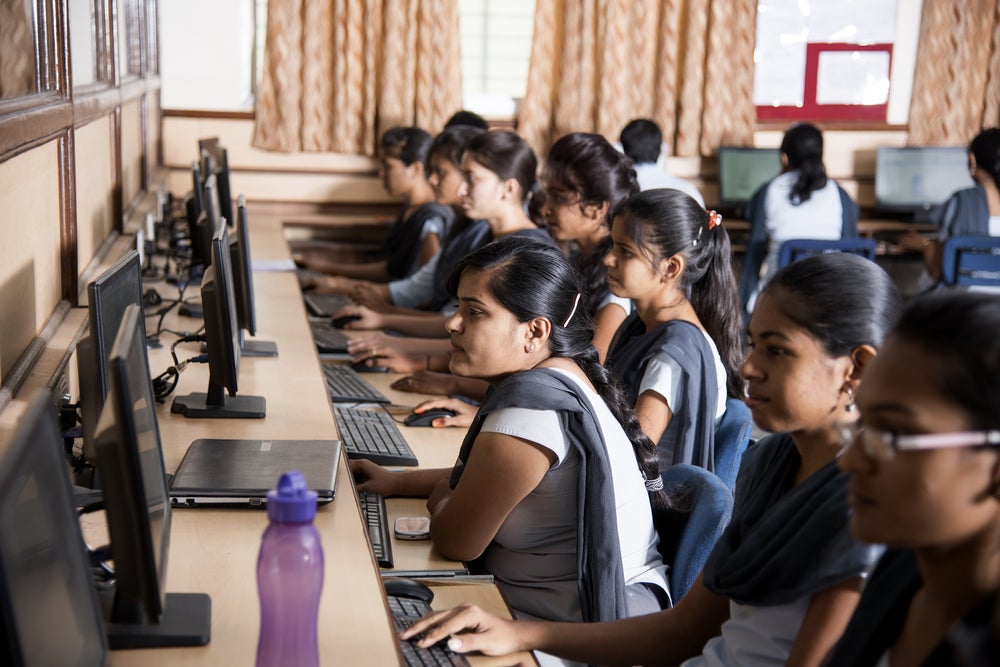 Young Information Technology students in India.
Young Information Technology students in India.
Ramya used to have a thriving career in India’s booming IT industry.
No surprise as she was one of my brightest students and graduated from a top university. Five years into her career, she got married. Despite moving to a new city and adjusting to life with her husband, she found a new job and resumed work.
Within a year, Ramya was pregnant and decided to quit her job. Now she takes care of her toddler full-time. Her once-promising career has come to a halt. As an educator, her decision deeply upsets me.
I asked her if she would consider returning to her job. “I’m a mother now,” she replied. “Who has the time to work?”
Sadly, Ramya’s story is all too common in South Asia, where women are poorly represented in the IT sector.
Studies indicate that in India alone, only 30 percent of the IT workforce is female. Most start well, but their careers are disrupted five to 10 years in, thanks to marriage or motherhood.
Studies indicate that in India alone, only 30 percent of the IT workforce is female.
The Returning Mothers program, established under the auspices of the World Bank's WePOWER Network, aims to address this by introducing women to female role models in science, technology, engineering, and math (STEM). Hearing personal stories from their peers inspires them to not give up on their careers.
Workshops are held to encourage local women and students to plan for future career breaks and help them reenter the job market seamlessly.
Providing a safe space where women can engage with women who have dropped out of their careers once in their lifetime proved useful.
A pregnant colleague who participated in the program said it was an eye-opener. She was able to plan for her maternity period and then returned and adjusted to her job.
Lack of family support and non-congenial work environments also contribute to the under-representation as women are less confident in their ability to return to work.
In line with the World Bank’s WePOWER Network, which aims to increase the skills and confidence of women engineering students, I recently developed a women's track called WePOWER in YESIST12: Age of Innovation, an international talent show.
This year, with WePOWER's support, we are hosting the Returning Mothers Program at an international conference in Bengaluru. The event will bring together experts in several multidisciplinary programs, enabling collaboration, cooperation, and mentorship. Around 150 women at various stages of their careers are expected to participate.
Our hope is that programs like Returning Mothers, with their ability to form large networks, can transform lives and help India’s IT industry.
For promising leaders like Ramya, it’s also a chance to achieve their potential and reach the top.


Join the Conversation